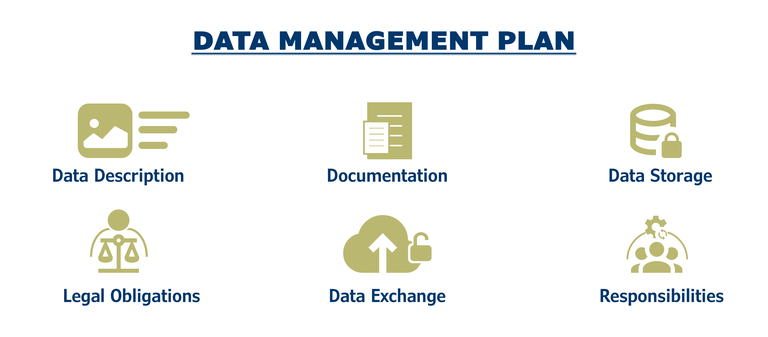Data management plan
Guidance for creating a data management plan (DMP)
Definition and Guidelines
A Data Management Plan (DMP) outlines how data will be created or collected, organized, documented, stored, used, preserved, and published in a research project, thesis, or dissertation, as illustrated in the figure. A DMP helps scientists and research groups to practice good data management and sharing, adhere to uniform standards, and avoid data loss.

Principle of the Research Data Policy of Humboldt University of BerlinResearchers affiliated with HU are obligated to securely store, appropriately prepare and document, and preserve research data for the long term.
A Data Management Plan Helps You Meet This Obligation. A data management plan supports you in fulfilling this obligation. In return, HU supports you with infrastructure and advice from the FDM team. You can find an overview of the requirements of the European Union and other research funders under Requirements of Funding Organizations. Please also consider any existing discipline-specific guidelines.
Advantages of a Data Management Plan
- Helps you identify and resolve potential problems early.
- Minimizes the risk of duplicate work, data loss, or data security breaches.
- Ensures that the data is complete, precise, and trustworthy.
- Saves time and effort in the long run (e.g., in data research, document creation, and data exchange).
- Is required by funding agencies (e.g., DFG, VW Foundation, Horizon 2020, Horizon Europe).

More information on RDM
and the creation of DMPs
can be found under

